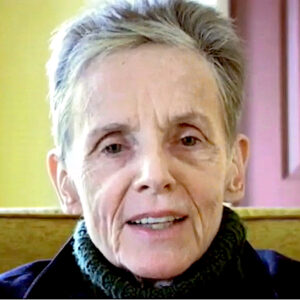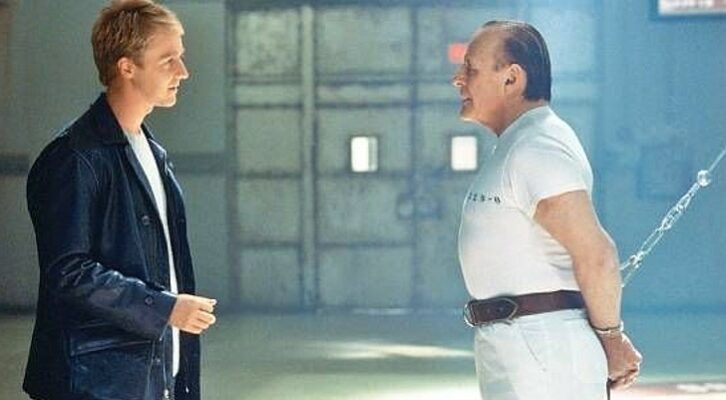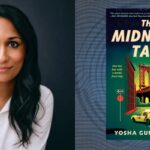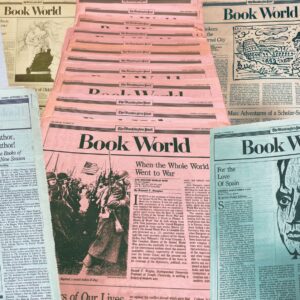
Sam Lipsyte, Karen Thompson Walker, and More Take the Lit Hub Questionnaire
5 Writers, 7 Questions, No Wrong Answers
The Lit Hub Author Questionnaire is a monthly interview featuring seven questions for five authors with new books. This month we talk to:
*
Dana Czapnik (The Falconer)
Sam Lipsyte (Hark)
Sarah McColl (Joy Enough)
Madhuri Vijay (The Far Field)
Karen Thompson Walker (The Dreamers)
*
Without summarizing it in any way, what would you say your book is about?
SAM LIPSYTE: Love, lust, despair, marriage, mental archery, political anguish, philosophies of parenting, the power of focus, fantasy bandy, William Tell, catfish who happen to be gifted motivational speakers, the Army of the Just, cheese-and-leek tarts.
MADHURI VIJAY: Loving a place that may not be yours to love. The degree of a citizen’s responsibility for her country’s actions. Cowardice and its aftermath.
KAREN THOMPSON WALKER: Sleep, dreams, and consciousness; contagion and quarantine; the varieties and the ethics of love, ordinary people, extraordinary circumstances, the radical uncertainty of every human life.
SARAH MCCOLL: Good moms, bad marriages, inherited identities; talking in the car, vegetable gardens, swimming; desire, sex, pleasure, grief, writing—because aren’t all books on some level about writing?
DANA CZAPNIK: The Falconer is primarily about a young woman coming to terms with being a flawed, multidimensional person in a world that doesn’t much like or get ambivalence or complexity. It’s also about a certain moment in New York right before the money took over, but was beginning to creep in. And it’s a snapshot of a small generation of American kids coming of age during a time of relative peace and prosperity, mired in their parents’ post-Vietnam, post-Watergate malaise; children of divorce and the breakdown of the nuclear family, benefiting from and grappling with the feminist and civil rights movements and generally distrustful of institutions. It’s also about basketball. And art.
*
Without explaining why and without naming other authors or books, can you discuss the various influences on your book?
MADHURI VIJAY: A story told to me when I was seventeen. Living in other people’s homes. Rage.
KAREN THOMPSON WALKER: My dreams, my toddler daughter’s dreams, videos of sleepwalkers I watched at a conference on sleep research, books about contagious diseases and hurricanes and earthquakes, books about time and physics and neuroscience, fire season in my California childhood, disaster movies, pregnancy, being a mother and a daughter and a wife, life on a freshman dorm floor, documentaries, conspiracy theories, poetry.
DANA CZAPNIK: Amsterdam Avenue above 86th Street. The Beastie Boys. Jenny Holzer’s Inflammatory Essays 1979-1982. The 1993 New York City Mayoral race and the 2016 Presidential debates. Piss Christ. The subway. Existentialist and feminist philosophy. Charles Oakley and John Starks. Flâneurs in literature. The passing of Title IX in 1972. The impossible promise of folk music.
SARAH MCCOLL: The beauty and loneliness of New England farms; Ivy League sexual politics of the late ‘60s and early ‘70s; écriture féminine; hot rollers, ball-busters, Designing Women; women’s journals and memoirs; depression; Linda Ronstadt, Bonnie Raitt, and Joni Mitchell; Third Wave Feminism.
SAM LIPSYTE: My book was influenced by many made-up people, including ones named Sidney Farte, Ellerbee, Frieda Copperfield, and Second Mate Stubb. The goddess Diana and various messiahs also had some sway, as did certain places and things, including Southern Rhode Island, drip coffee, French press coffee, “Gay Guerilla” by Julius Eastman, the bagels of Absolute Bagels in New York City, a haunted castle in Umbria, and my wife’s old yoga mat.
*
Without using complete sentences, can you describe what was going on in your life as you wrote this book?
SARAH MCCOLL: Dead mom, divorce, graduate school. Frozen drinks, reckless decisions, devil-may-care attitude. Cold brew, Hutchinson River Parkway, Franny’s pizza, East River ice, Neko Case, and crossing Brooklyn Bridge at night with the windows down. A driving sense of purpose and near daily panic.
SAM LIPSYTE: Therapy, surgery, parent-teacher conferences, lentil soup, a swim in a slow-moving river, a crisis of meaning, a renunciation of IPAs with an ABV of 6.5% or higher.
DANA CZAPNIK: Graduate school, pregnancy, baby, colic, ANGST, Trump.
MADHURI VIJAY: Bakerkhani and chalk dust. Tea and Marie biscuits. Secondary inspection and the timely photograph of a camel. Grandmas at sunset and pigs on the hill. Hinjews at the West End.
KAREN THOMPSON WALKER: Two pregnancies, two C-sections, four long-distance moves (Iowa City, Brooklyn, Eugene (OR), Portland), teaching, reading, fretting, many hours of horrified news-following, all of it balanced by an up-close view of the development of personality and consciousness in two small human beings.
*
What are some words you despise that have been used to describe your writing by readers and/or reviewers?
DANA CZAPNIK: A reader on Goodreads said some of my writing was “cringe-worthy” and as an example referenced a line where an artist character describes the lips as “the nipples of the face.” That line alone would make me want to read my book! But I wrote it, so I’m biased. Nipple is just one of the all-time great words and automatically makes a sentence better regardless of how it’s used. I guess one person’s cringe-worthy is another person’s nipple.
SAM LIPSYTE: How can I despise the words? The words are innocent. I despise the cruel, soulless hacks who use those poor, unsuspecting words to attack me. As for praise, I don’t nitpick. I appreciate it in all its forms.
MADHURI VIJAY: Numerous people have used the term “frustrating,” which I initially disliked but have come to find rather flattering. “Coming of age,” on the other hand, continues unfailingly to irritate me.
SARAH MCCOLL: Self-indulgent, as if taking one’s life as a subject were a way to treat yo’self. Small, minor, domestic, slight—any shrinking, circumscribing words that equate women’s experience with narrowness of scope. No one’s calling Knausgaard “domestic.”
KAREN THOMPSON WALKER: I feel lucky to have readers and reviewers, and I try to remember that it’s not my job to decide how they choose to describe my work. I can only control my own writing—not theirs.
*
If you could choose a career besides writing (irrespective of schooling requirements and/or talent) what would it be?
KAREN THOMPSON WALKER: Architect or visual artist (with an emphasis on the phrase: “irrespective of talent”).
SAM LIPSYTE: Private detective in a lunar metropolis? Underdog expansion team quarterback? Ice cream taster? (It’s been a while since I really thought about an alternative career.)
DANA CZAPNIK: Are we talking straight-up fantasy here? If so, I would be a pro tennis player. If we’re talking something practical and sort of within the realm of possibility, I’d be a physicist. The world must look so different to people who have real knowledge of how things work.
SARAH MCCOLL: Rodeo queen turned country music singer or Miss Rumphius-style village crone & art monster.
MADHURI VIJAY: Opera singer, preferably contralto. Otherwise, cage fighter.
*
What craft elements do you think are your strong suit, and what would you like to be better at?
MADHURI VIJAY: I’m good at creating and maintaining tension between two characters. I’d like to be looser and more dynamic with dialogue.
SARAH MCCOLL: I’m good at endings, sensory detail, dialogue. I know how to put emotional life on the page. I’m very interested in meaning and not that interested in plot, so that’s a struggle. Structure is usually the last thing that comes to me, but also one of the most interesting problems to solve.
KAREN THOMPSON WALKER: I try to use my short attention span to my advantage, to help keep my stories moving forward, to recognize when the momentum might be flagging. I also devote a lot of attention to my sentences, which I hope is evident in the writing. My next goal is to capture the interiority of characters who are very different from myself. Almost all of the characters in The Dreamers have at least something in common with my own way of thinking, but I’d someday love to write from the perspective of someone who sees the world in a completely different way.
DANA CZAPNIK: I think my writing has a strong voice and energy. And I can sometimes compose a good, comically dark sentence. I don’t have a particular interest in plot or story as a writer or reader. Mostly, I wish I wrote funnier and I wish dialogue came easier to me.
SAM LIPSYTE: I feel pretty solid on the who, what, where, why and how fronts. Sometimes when gets a little slippery, but I always attend to that in the editing.
*
How do you contend with the hubris of thinking anyone has or should have any interest in what you have to say about anything?
SARAH MCCOLL: Artists and writers do the emotional labor of the world. The books I love most broaden and deepen my understanding of what it means to be alive. So, I don’t think it’s hubris. A piece of writing is like a deposit into the global psychic bank. It’s offered as a gift.
SAM LIPSYTE: I don’t take anybody’s interest for granted. Writers have to earn the reader’s attention with every idea, image and sound. It’s all a big gamble. You throw everything you’ve got into it and hope the result evokes thought and feeling in other people. That’s all there is in this.
MADHURI VIJAY: I drink heavily on Saturdays and wear a hairshirt on Sundays. That’s usually enough to get me through another week.
KAREN THOMPSON WALKER: I guess I don’t think of writing in that way. I just try to write books that I would want to read. The rest is out of my hands.
DANA CZAPNIK: I really love nature. I love hiking and camping and skiing and the ocean. I love animals. I love the seclusion that nature offers. But I can only stand being in nature for so long before I crave returning to New York. I’ve thought about why this is a lot. Why am I unhappy spending long periods of time in the country? Life would be so much easier, so much quieter, so much more affordable if I loved living in a rural part of the country. And the answer is that I like people. People are often noisy and annoying, but they also have ideas and create art and music and write about philosophy and make up stories and I like being in the spot with the highest concentration of all those things. For some, what I’ve written might wind up just being more noise, but for some it might not.
Teddy Wayne
Teddy Wayne, the author of Apartment, Loner, The Love Song of Jonny Valentine, and Kapitoil, is the winner of a Whiting Writers’ Award and an NEA Fellowship as well as a finalist for the Young Lions Fiction Award, PEN/Bingham Prize, and Dayton Literary Peace Prize. He writes regularly for The New Yorker, The New York Times, Vanity Fair, McSweeney’s, and elsewhere. He lives in New York.



















